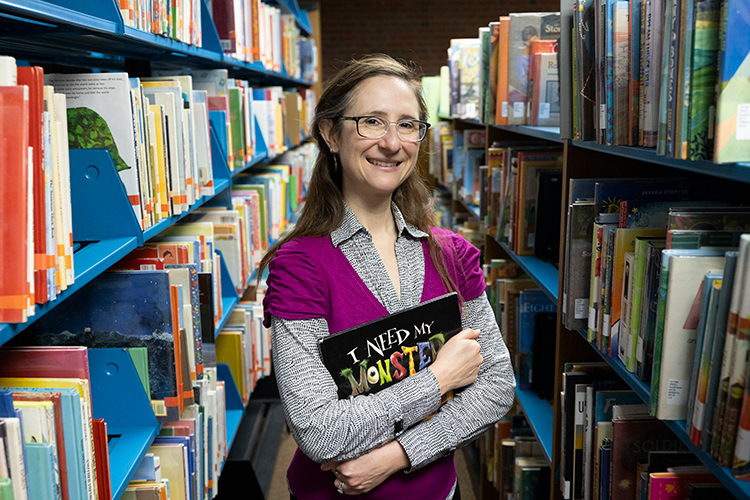Sarah Beth Nelson remembers being enchanted by Pete Seeger’s performance of “The Foolish Frog,” when she was a youngster. The story of a frog who got the whole countryside singing his song featured repetitive choruses and multiple voices, guaranteed to keep children involved in the story.
Nelson, who joined the School of Information Studies as an assistant professor in the fall semester, still enjoys researching and teaching at the intersection of children’s literature and performance.
Her classes focus on preparing librarians, including for children’s story hours. In addition to teaching, she researches oral information practices and open mic story telling. She also performs as a professional storyteller herself.
“I like the face-to-face connection between storytellers and listeners.”
She was telling stories long before she began to research the field, she said.
“I like the face-to-face connection between storytellers and listeners.”
Nelson chose information studies as a career because she wanted to combine her interest in research with her interest in performing and adult and children’s literature.
Her career path developed when she was a child, Nelson said. Growing up, her mother had taken her to theatre performances. She also took part in programs like Odyssey of the Mind and played clarinet and piano, which helped make her comfortable with performing in public, she said.
After earning her degree in school library science at the University of Georgia, she became a school librarian. She then went on to earn her doctorate in library and information science from the University of North Carolina at Chapel Hill. Before joining the School of Information Studies, she taught at UW-Whitewater, where the program was part of the College of Education and Professional Studies.
She decided to come to UWM, she said, because she wanted to be part of a school focused on libraries. “It’s nice being around other library science and information studies colleagues.”
Nelson enjoys sharing stories with her son, 11, and her daughter, 13, and they often attend storytelling events and festivals together.
While social media and videos filled a gap during the pandemic, they won’t ever replace the in-person experience, she said. “Social media can be good when it’s hard to get together with people but doesn’t allow the good feeling of face-to face.” Sharing stories In person, she added, is a more vulnerable and genuine experience than digital.
In a way, she said, the storyteller and the listener are co-creating the experience together.
“They can shift and work back and forth. It’s never the same twice.”
